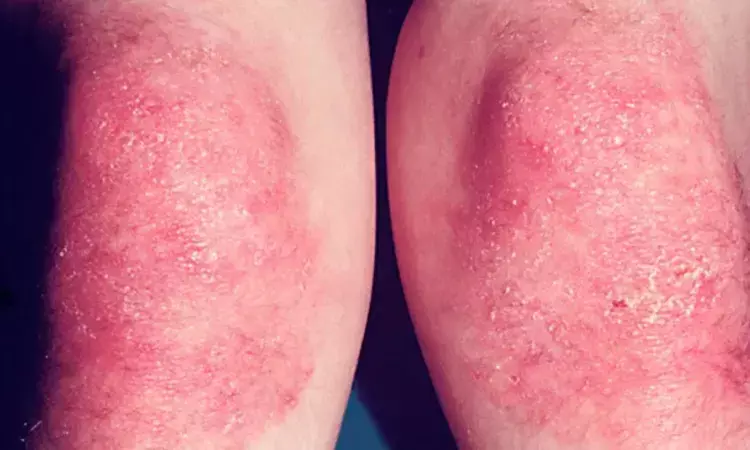- Home
- Medical news & Guidelines
- Anesthesiology
- Cardiology and CTVS
- Critical Care
- Dentistry
- Dermatology
- Diabetes and Endocrinology
- ENT
- Gastroenterology
- Medicine
- Nephrology
- Neurology
- Obstretics-Gynaecology
- Oncology
- Ophthalmology
- Orthopaedics
- Pediatrics-Neonatology
- Psychiatry
- Pulmonology
- Radiology
- Surgery
- Urology
- Laboratory Medicine
- Diet
- Nursing
- Paramedical
- Physiotherapy
- Health news
- Fact Check
- Bone Health Fact Check
- Brain Health Fact Check
- Cancer Related Fact Check
- Child Care Fact Check
- Dental and oral health fact check
- Diabetes and metabolic health fact check
- Diet and Nutrition Fact Check
- Eye and ENT Care Fact Check
- Fitness fact check
- Gut health fact check
- Heart health fact check
- Kidney health fact check
- Medical education fact check
- Men's health fact check
- Respiratory fact check
- Skin and hair care fact check
- Vaccine and Immunization fact check
- Women's health fact check
- AYUSH
- State News
- Andaman and Nicobar Islands
- Andhra Pradesh
- Arunachal Pradesh
- Assam
- Bihar
- Chandigarh
- Chattisgarh
- Dadra and Nagar Haveli
- Daman and Diu
- Delhi
- Goa
- Gujarat
- Haryana
- Himachal Pradesh
- Jammu & Kashmir
- Jharkhand
- Karnataka
- Kerala
- Ladakh
- Lakshadweep
- Madhya Pradesh
- Maharashtra
- Manipur
- Meghalaya
- Mizoram
- Nagaland
- Odisha
- Puducherry
- Punjab
- Rajasthan
- Sikkim
- Tamil Nadu
- Telangana
- Tripura
- Uttar Pradesh
- Uttrakhand
- West Bengal
- Medical Education
- Industry
Intravenous immunoglobulin effective against dermatomyositis: NEJM

Delhi: Intravenous immune globulin (IVIG) treatment in patients with dermatomyositis confers more significant improvement in disease activity compared to placebo, results from a recent 16-week ProDERM trial in The New England Journal of Medicine have shown.
Dermatomyositis is a rare systemic autoimmune disorder without known pathogenesis. The condition is characterized by chronic skin and muscle inflammation leading to progressive weakness and rashes, mainly in proximal muscles.
Glucocorticoids are used as the first-line therapy, followed by various immunosuppressants. Intravenous immune globulin made from purified liquid IgG concentrates from human plasma, usually in combination with immunosuppressive drugs, has been utilized off-label as a second or third-line treatment for dermatomyositis. Also, IVIG has been recommended in European guidelines as a glucocorticoid-sparing agent in dermatomyositis patients; but it has not been studied extensively.
Considering the above, Rohit Aggarwal and colleagues conducted a randomized, placebo-controlled trial comprising patients with active dermatomyositis. Ninety-five patients were randomly allocated 1:1 to receive IVIG at a dose of 2.0 g per kilogram of body weight (n=47) or a placebo every four weeks for 16 weeks (n=48).
The patients who got a placebo and those without confirmed clinical worsening while receiving IVIG entered an open-label extension phase for another 24 weeks.
The study's primary endpoint was a response, defined as a Total Improvement Score (TIS) of at least 20 (suggesting at least minimal improvement) at week 16 and no confirmed decline up to week 16. The TIS is a composite score that indicates the changes in six measures of myositis activity over time; the score varies from 0 to 100, and a higher score reflects more significant improvement.
Critical secondary endpoints were a change in score on the Cutaneous Dermatomyositis Disease Area and Severity Index, and at least moderate improvement (TIS ≥40) and significant improvement (TIS ≥60).
The study led to the following findings:
- At 16 weeks, 79% of the patients in the IVIG group and 44% in the placebo group had a TIS of at least 20.
- The results concerning the secondary endpoints, including at least moderate improvement and significant improvement, were generally in the same direction as the results of the primary endpoint analysis, except for the change in the level of creatine kinase (an individual core measure of the TIS), which did not differ meaningfully between the two groups.
- Over 40 weeks, 282 treatment-related adverse events occurred in the IVIG group, including headache (42% of patients), pyrexia ( 19%), and nausea (16%).
- A total of 9 serious adverse events related to IVIG occurred, including six thromboembolic events.
"In the 16-week trial comprising patients with dermatomyositis, there was a significantly greater percentage of patients with a response of at least minimal improvement based on a composite score of disease activity in patients who were administered IVIG compared to those given placebo," the researchers wrote. "IVIG was linked with adverse events, including thromboembolism."
Reference:
The study, "Trial of Intravenous Immune Globulin in Dermatomyositis," appears in The New England Journal of Medicine.
DOI: 10.1056/NEJMoa2117912
Dr Kamal Kant Kohli-MBBS, DTCD- a chest specialist with more than 30 years of practice and a flair for writing clinical articles, Dr Kamal Kant Kohli joined Medical Dialogues as a Chief Editor of Medical News. Besides writing articles, as an editor, he proofreads and verifies all the medical content published on Medical Dialogues including those coming from journals, studies,medical conferences,guidelines etc. Email: drkohli@medicaldialogues.in. Contact no. 011-43720751


